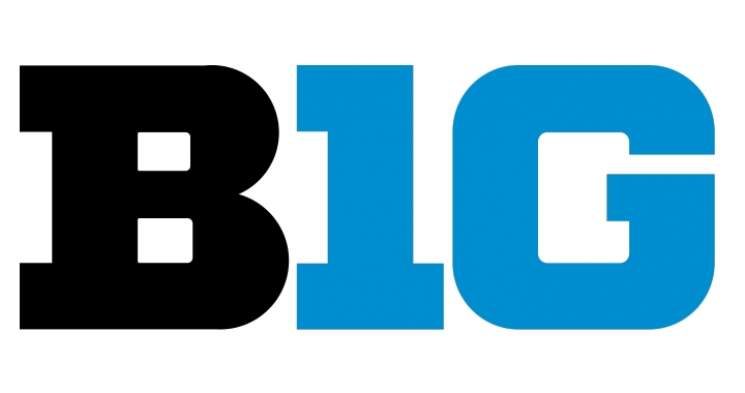
For over 120 years, people in the Midwest have put aside political differences on crisp autumn Saturday afternoons to watch young warriors do battle on the football fields of the Big Ten Conference. This year, those fields are silent, as the conference has postponed its fall sports competitions owing to coronavirus fears.
But in this highly charged election year, the question must be asked — is the Chinese virus the only reason teams in the Big Ten are not playing?
“Lingering in the background of the Big Ten’s decision to cancel fall sports has always been the whispers that the decision was also influenced by politics,” writes Outkick’s Clay Travis.
The 2020 election will likely hinge on a few swing states, some of which just happen to be in the Big Ten’s conference footprint. In 2016, Donald Trump won largely because of his swing-state victories in Michigan, Ohio, Iowa, and Wisconsin — all football-crazy states with teams in the Big Ten.
Now, the Biden campaign has come out with a new ad that blames President Trump for the empty stadiums across the land. The ad is targeted to states that have Big Ten Conference schools. Entitled “Anthem,” the ad shows empty football stadiums — several of which are in the conference — and plays a maudlin electric-guitar version of the “Star Spangled Banner.” It then proclaims that “Trump put America on the sidelines. Let’s get back in the game.”
Possibly reacting to the Biden ad, President Trump is telling the conference to play in no uncertain terms. “No, I want Big Ten and all other football, back — NOW. The Dems don’t want football back, for political reasons, but are trying to blame me and the Republicans. Another LIE, but this is what we are up against!” the president tweeted.
Disgraceful that Big Ten is not playing football. Let them PLAY!
— Donald J. Trump (@realDonaldTrump) August 29, 2020
While officially the conference cites “the knowledge that there was too much medical uncertainty and too many unknown health risks regarding SARS-CoV-2 infection and its impact on our student athletes,” questions remain as to the ultimate decision-making process involved. The decision not to play a normal schedule in 2020 was made under mysterious circumstances without any input from athletic directors, coaches, or student athletes.
Also being cited is a study that claims people infected with COVID-19 are at a higher risk for having cardiac problems. But University of Michigan Professor of Cardiology Venk Murthy and his colleagues are questioning the validity of that paper.
“Bad statistics and lots of moderate to severe effusions, LGE, etc in their controls means to me … we should put little stock in this paper,” Murthy wrote on Twitter.
The decision to postpone the season seems to have been made in secrecy by the university presidents and first-year Big Ten Commissioner Kevin Warren.
Warren came to the conference after working in professional sports with the NFL’s Minnesota Vikings, and according to a June Yahoo Sports article, he came with some left-wing political ideology and a social-justice chip on his shoulder.
“As a conference, we have a platform,” Warren told Yahoo Sports. “I think we have a responsibility. We have a mechanism to pull people together. The hate we have in our communities and the racism that’s occurred, it can’t go on any longer.”
In the five months since Warren took over as commissioner, he has started the Big Ten Anti-Hate and Anti-Racism Coalition. The conference has also announced plans for a voter-registration initiative targeting its nearly 10,000 student athletes.
Warren has also railed against “the systemic issues regarding racism and hate” in America. “I want to make sure I do what I can to create that environment … to really work together to change the world,” Warren said. “Sports is a powerful conduit for change.”
A group of six Big Ten schools led by football powerhouse Ohio State was considering a plan to bypass the conference and play a ten-game schedule of their own, but that idea seems to have been nixed by the university presidents.
Student athletes and parents are angry with the conference, especially considering that most of their brethren in the other Power Five conferences will be playing this fall. The Southeastern Conference (SEC), the Atlantic Coast Conference (ACC), and the Big 12 are all still planning to play a revised fall schedule, while the Pac 12 Conference, located primarily on the West Coast, has joined the Big Ten in not playing.
Eight Nebraska football players are currently suing the Big Ten over their decision, claiming that the conference’s decision should be “overturned because it didn’t follow established procedures in the decision-making process and was ‘unjustified’ based on flawed and misapplied medical information.”
The decision to postpone the season has never been fully explained to the student athletes or the public. In fact, the documents surrounding the decision process are being hidden from review by Big Ten attorneys. Lead attorney Andrew Luger is arguing that the “harm would be incredible” if those documents were made public just because eight players disagreed with the decision, claiming such an action would have “no precedent.”
But these are unprecedented times. And it seems that if anyone would have a right to know the complete ins and outs of why the season has been put on hold, it’s the athletes who have had their lives severely disrupted.
The Big Ten is now floating the idea of beginning the season sometime during the Thanksgiving Day weekend, which, perhaps coincidentally, perhaps not, is after the presidential election. How do they know that football will be safe then?
Despite Commissioner Warren’s assertion that “Sports is a powerful conduit for change,” sports are always at their best when they act as an escape from things such as politics — not as an addendum to them.
James Murphy is a freelance journalist who writes on a variety of subjects. He can be reached at [email protected].



